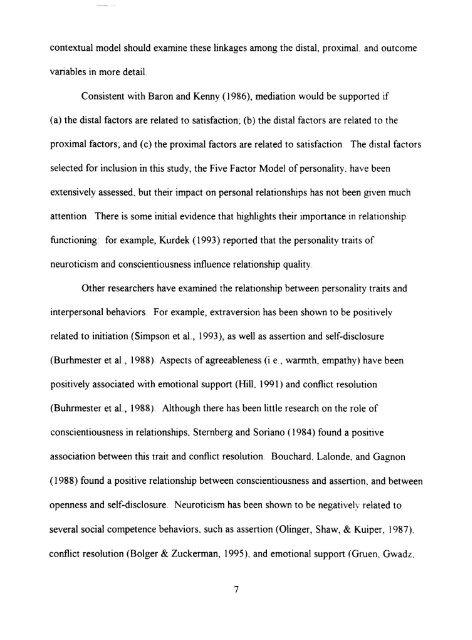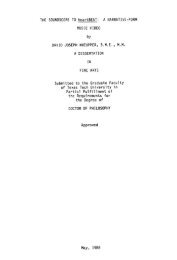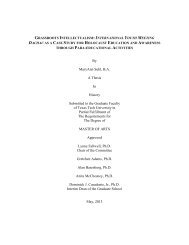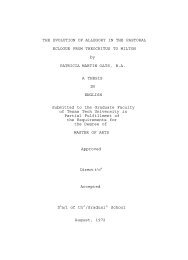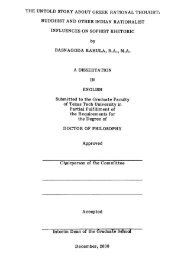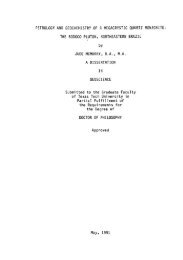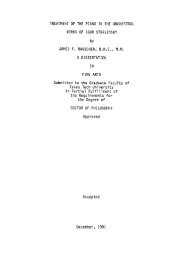THE FIVE FACTORS OF PERSONALITY AND INTERPERSONAL ...
THE FIVE FACTORS OF PERSONALITY AND INTERPERSONAL ...
THE FIVE FACTORS OF PERSONALITY AND INTERPERSONAL ...
Create successful ePaper yourself
Turn your PDF publications into a flip-book with our unique Google optimized e-Paper software.
contextual model should examine these hnkages among the distal, proximal, and outcome<br />
variables in more detail<br />
Consistent with Baron and Kenny (1986), mediation would be supported if<br />
(a) the distal factors are related to satisfaction, (b) the distal factors are related to the<br />
proximal factors, and (c) the proximal factors are related to satisfaction The distal factors<br />
selected for inclusion in this study, the Five Factor Model of personality, have been<br />
extensively assessed, but their impact on personal relationships has not been given much<br />
attention. There is some initial evidence that highlights their importance in relationship<br />
functioning: for example, Kurdek (1993) reported that the personality traits of<br />
neuroticism and conscientiousness influence relationship quality<br />
Other researchers have examined the relationship between personality traits and<br />
interpersonal behaviors. For example, extraversion has been shown to be positively<br />
related to initiation (Simpson et al., 1993), as well as assertion and self-disclosure<br />
(Burhmester et al, 1988). Aspects of agreeableness (i e , warmth, empathy) have been<br />
positively associated with emotional support (Hill, 1991) and conflict resolution<br />
(Buhrmester et al., 1988). Although there has been little research on the role of<br />
conscientiousness in relationships, Sternberg and Soriano (1984) found a positive<br />
association between this trait and conflict resolution Bouchard, Lalonde, and Gagnon<br />
(1988) found a positive relationship between conscientiousness and assertion, and between<br />
openness and self-disclosure Neuroticism has been shown to be negatively related to<br />
several social competence behaviors, such as assertion (Olinger, Shaw, & Kuiper, 1987),<br />
conflict resolution (Bolger & Zuckerman, 1995), and emotional support (Gruen, Gwadz.


